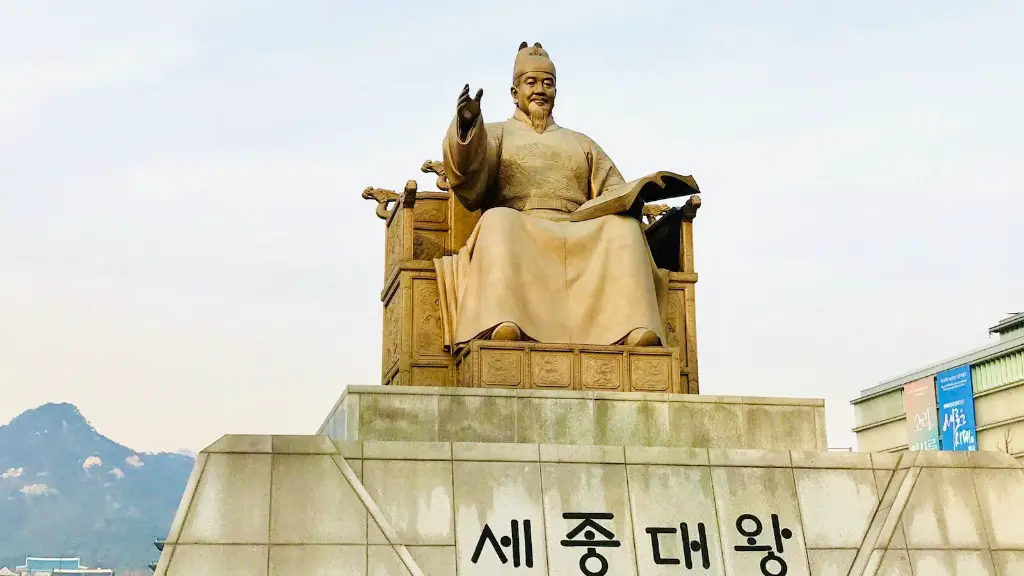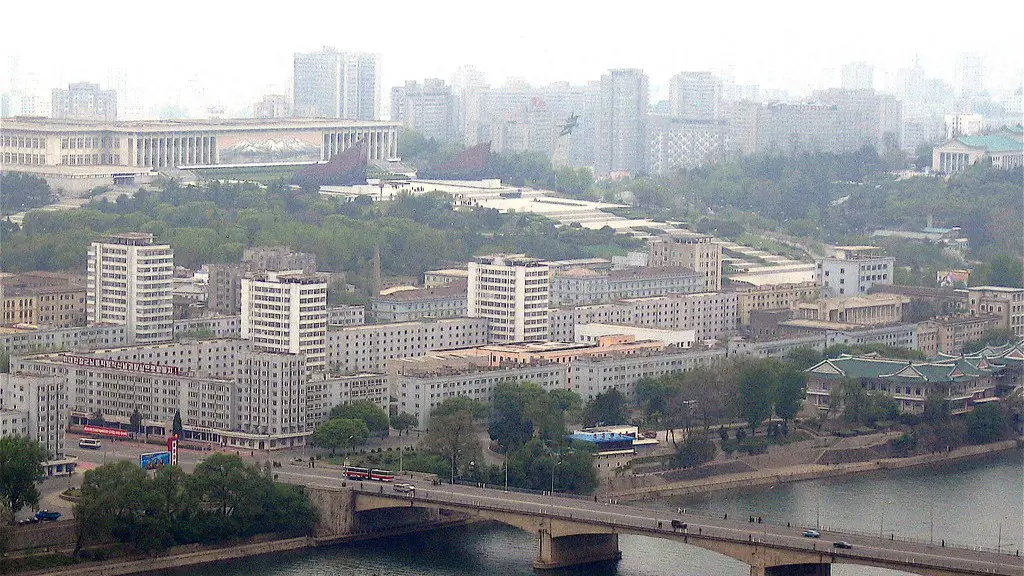An international crisis has been brewing in the Korean peninsula over the latter’s growing nuclear and ballistic missile programmes. North Korea is increasingly isolated and has become increasingly belligerent in its rhetoric and actions. With signs of possible military conflict in the brink of the horizon, experts are asking: if North Korea is attacked, will Russia come to its defence?
There are a few factors suggesting that Russia sympathizes with North Korea over its current predicament. Historical background must be taken into account when looking at the current situation. After the Cold War, Russia and North Korea have had a fraternal relationship, despite the latter’s political leanings. Indeed, many consider Russia and North Korea as strategic allies in the region.
Russia is well aware that a military conflict in the Korean peninsula would have multiple negative outcomes. Such a conflict would disrupt global trade and would add tensions to a region that is already fraught with tension. Additionally, a war could worsen the already dire humanitarian situation in the Democratic People’s Republic of Korea (DPRK), which would not bode well for Russia’s reputation.
Russian President Vladamir Putin recently spoke about the security situation on the Korean peninsula in a press conference. While he expressed his concerns, Putin ultimately urged restraint, calling North Korea’s ballistic missile tests “counter-productive”. This displays Russia’s reluctance to engage in a potential war of military conflict.
Furthermore, it is widely believed that Russia has been supplying North Korea with cheap oil and coal. This is seen by many observers as an attempt to maintain the status quo and to oppose any potential U.S. military action against the DPRK. It is likely that Russia is doing its best to avoid the North Korean crisis escalating into a full-scale war, in order to protect its interests in the region.
All in all, it seems highly likely that Russia would not actively participate in a military conflict if one were to occur between North Korea and the United States. Russia may stand in diplomatic solidarity with its ally, but it is unlikely that it would take any meaningful military action. This is due to the consequences such an action would bring, and Russia’s desire to remain neutral in world affairs.
Economic Influence
If a military conflict were to occur, it is likely that the economic effects would reverberate globally. North Korea’s economy would be affected the most, but other countries would also feel the pinch. The United Nations Security Council introduced severe sanctions against North Korea in 2017. This has dramatically reduced its ability to import goods, especially goods of a food-type. Any military conflict would only serve to exacerbate the situation.
Thus far, North Korea has been able to remain afloat due to its trade with China. Sino-Korean trade has been responsible for almost eighty-five percent of North Korea’s total imports and provided it with close to a billion dollars in foreign currency reserves. It is likely that Russia would actively take part in any economic stimulus packages put forward should a military conflict occur.
Russia has used economic aid as a form of diplomacy in other parts of the world, such as in the Middle East and Afghanistan. Such economic aid is a form of quiet diplomacy, and could be one of the ways in which Russia would maintain its good relations with North Korea should a military conflict occur.
Furthermore, Russia is no stranger to economic sanctions and embargos. Russia experienced sanctions for a period of time during the Cold War, and has since been actively opposed to the widespread application of such measures by the international community. It is thus likely that Russia would oppose any economic sanctions against North Korea and would actively look for alternative courses of action.
Geopolitical Implications
When looking at a potential military conflict between North Korea and the United States, it is important to take into account the geopolitical implications such a conflict would bring. It is widely believed that North Korea’s development of nuclear weapons and ballistic missiles is a direct response to U.S. foreign policy in the region.
It is likely that a conflict between the two states would further increase the instability in East Asia, a region already fraught with tension. A conflict could serve to draw in more regional powers, such as China and Japan, and further exacerbate the already tense situation.
Given the strategic value of East Asia, it is likely that Russia would attempt to maintain the region’s stability and prevent a conflict from erupting. Thus far, Russia has been working to diplomatically resolve the situation, with President Putin directly appealing to both North Korean leader Kim Jong-Un and U.S. President Donald Trump to show restraint.
Russia has been attempting to position itself as a geo-strategic partner of East Asia. It is likely that Russia would play a key role in any talks regarding the resolution of the North Korean crisis. As such, it is unlikely that Russia would actively participate in a military conflict, as doing so would jeopardize its attempts to mediate the situation and position itself as a key player in the region.
Political Impacts
The political implications of a military conflict between North Korea and the United States should not be underestimated. Given the current international climate, a conflict between these two states would have profound implications for global security. It is likely that the international community, particularly the United Nations, would become heavily involved in order to diffuse the situation.
Russia, as one of the five permanent members of the United Nations Security Council, could play a key role in any negotiations. Such negotiations are likely to be long and complex, and would require a delicate balancing of interests between all parties involved. It is likely that Russia would attempt to use its diplomatic clout in order to bring the two states to the negotiating table.
Russia is already active in the Korean crisis, both in terms of economic aid and diplomatic efforts. It is likely that Russia would continue to pursue its diplomatic agenda, rather than engaging in any military confrontation with the United States. Russia is likely to maintain its stance of neutrality and attempt to play the role of mediator, in order to ensure peace and stability in the region.
International Reactions
An international conflict between North Korea and the United States would no doubt cause a stir within the international community. It is likely that many states would view such a conflict with dismay, as it would have a destabilizing effect on the region and would have the potential to draw in more regional powers.
The United States’ allies in the region, such as Japan and South Korea, are likely to view such a conflict with fear and trepidation. They would likely oppose any attempts by North Korea to expand its nuclear arsenal, and would actively seek to contain any such attempts. It is likely that Russia would attempt to work with the international community in order to counter any attempts by North Korea to expand its nuclear arsenal.
Russia has also been actively engaging with other nations in the region, such as China and South Korea, in order to bring about a diplomatic solution to the situation. It is likely that Russia will continue to do so, in order to ensure that a peaceful solution can be found and that a military conflict can be avoided.
Environmental Consequences
The environmental consequences of a military conflict between North Korea and the United States should also be taken into account. A conflict would undoubtedly cause untold destruction and would have a drastic effect on the region’s environment.
It is likely that any military action would involve the use of nuclear weapons, which would have severe environmental consequences. The use of nuclear weapons would damage the ecosystem of the Korean peninsula, and would cause environmental disasters that could last for generations.
Russia has been an outspoken opponent of the use of nuclear weapons and has been working with other members of the international community to promote non-proliferation of nuclear weapons. It is likely that Russia would take a leading role in promoting environmental stewardship and in mitigating the environmental impact of any potential military conflict.
Russia has been actively engaging with other countries in the region to ensure that a diplomatic solution can be found to the Korean crisis. Russia has championed the peaceful resolution of disputes, and has worked to ensure that both North Korea and the United States take a more restrained approach to the situation.
Conclusion
While it is difficult to predict how Russia would respond if North Korea were to be attacked, all signs point to a diplomatic stance taken by Russia. Russia is likely to stick to its policy of reserving its military presence in the region, and to continue its diplomatic efforts to ensure that a peaceful resolution can be found.





